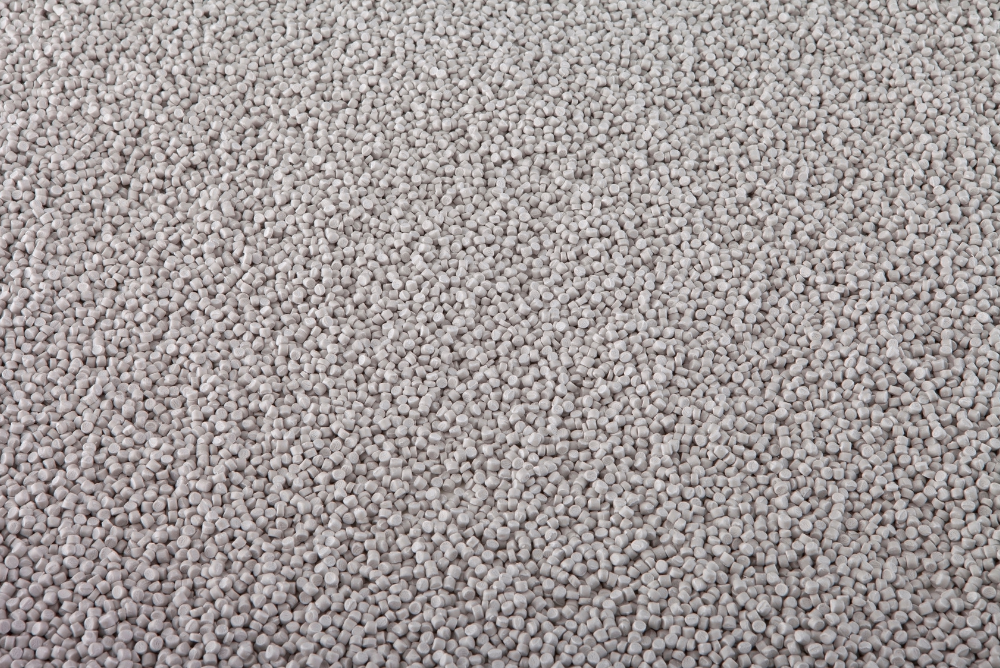Aluminium Profile Horizontal Spraying Powder Chamber Foshan Meitu Machinery Equipment Co., Ltd , https://www.meitumachinery.com
Sustainable Innovations: Exploring the Versatile Uses of Recycled ABS Resins
Acrylonitrile Butadiene Styrene, commonly referred to as ABS, is a thermoplastic polymer renowned for its versatility and widespread application. Derived from the combination of three monomers—acrylonitrile, butadiene, and styrene—ABS exhibits a balanced set of properties that make it ideal for molding components requiring precise dimensions and excellent surface finishes. Known for its impact resistance and suitability for metal plating, ABS is not only functional but also recyclable, offering an opportunity to reduce carbon footprints significantly. Reprocessing this material into new products minimizes waste and lessens reliance on raw, often energy-intensive resources. This approach conserves resources and cuts down on greenhouse gas emissions tied to the production of virgin materials. This article explores the myriad possibilities that recycled ABS presents across diverse industries.

### Benefits of Utilizing Recycled ABS Resins
Recycled ABS resins have emerged as a highly versatile and durable plastic option, gaining traction across various sectors as sustainability becomes a focal point for manufacturers. While recycled ABS generally preserves its toughness, impact resistance, and thermal stability, the properties may vary slightly depending on the quality and consistency of the recycled material. Adjustments can be made through advanced recycling techniques or by adding stabilizers and virgin ABS to ensure optimal performance. Below are some key advantages of employing recycled ABS, along with insights into how the recycling process impacts its characteristics.
- **Reduced Environmental Impact**: Incorporating recycled ABS resin greatly diminishes the environmental footprint by preventing plastic waste from ending up in landfills and reducing pollution. This sustainable practice supports cleaner ecosystems and curtails greenhouse gas emissions. By adopting recycled materials, industries can foster a circular economy, promoting more responsible production and consumption habits.
- **Resource Conservation**: Recycling ABS conserves vital natural resources by cutting down on the demand for virgin raw materials. This reduces the depletion of finite resources like petroleum, which is extensively used in creating new ABS. Manufacturers leveraging recycled ABS can decrease their dependence on non-renewable resources, ensuring more sustainable and responsible resource management.
- **Outstanding Performance and Durability**: Recycled ABS retains its original properties, including excellent impact resistance, making it suitable for high-stress environments like automotive parts and consumer electronics. Its ability to endure significant force without fracturing or breaking guarantees long-term performance. Additionally, its robustness ensures structural integrity, allowing products made from recycled ABS to maintain consistency and dependability under varying conditions.
- **Thermal Stability and Mechanical Strength**: The recycled ABS maintains its structural stability, withstanding harsh environmental conditions and fluctuating temperatures. This attribute ensures that products remain consistent and reliable even when exposed to mechanical stress. Furthermore, ABS provides high tensile and mechanical strength, making it ideal for demanding industrial applications where materials must endure heavy loads.
### Revolutionizing Industries with Recycled ABS
Beyond its environmental benefits, recycled ABS is transforming industries by delivering cost-effective and high-performance solutions, fueling innovation and sustainability. Here's how various sectors are harnessing the advantages of recycled ABS:
- **Automotive Industry**: Recycled ABS is extensively used for interior components such as dashboards, door panels, and trim pieces, offering durability and cost savings. Its impact resistance makes it perfect for exterior parts like mirror housings, grilles, and wheel covers. Engine components such as covers and housings benefit from recycled ABS' heat resistance and structural stability, ensuring prolonged performance under demanding conditions.
- **Electronics and Electrical Sector**: Recycled ABS resins are utilized in device housings for computers, TVs, and printers, providing safety and durability. Components like switches, connectors, and cables also employ recycled ABS for electrical insulation, ensuring the reliability of electronic devices.
- **Consumer Goods and Toys**: Found in household appliances like vacuum cleaners and kitchen appliances, recycled ABS offers lightweight yet durable solutions. It is also used in toys, building blocks, and game pieces, ensuring safety and resilience, making it a popular choice for products targeted at children.
- **Construction Industry**: Recycled ABS is employed in plumbing systems for pipes and fittings due to its durability, flexibility, and resistance to wear. It is also used in building materials such as wall panels, insulation, and roofing sheets, providing structural stability and longevity essential for constructing sustainable and resilient structures.
- **Medical Devices**: Recycled ABS resins are used for equipment housings and enclosures, providing chemical resistance and sterility. Various parts of medical devices and laboratory equipment also leverage recycled ABS.
- **Furniture Industry**: Recycled ABS is incorporated into office furniture such as chairs, desks, and storage units, offering ergonomic and durable solutions. In home furniture, it appears in shelves, tables, and decorative items, enhancing both functionality and design.
- **Packaging**: Recycled ABS is used in containers and bottles for cosmetics and personal care products. It is also applied in protective packaging for shipping electronics and fragile items, providing cushioning and impact resistance to safeguard goods during transit.
- **Industrial Applications**: Recycled ABS is used in housings for power tools and industrial equipment for protection. It is also employed in machinery components, offering mechanical strength and reliability to maintain the efficiency and longevity of industrial machines.
Many businesses across industries now prefer using recycled ABS resins due to their durability, cost-effectiveness, and environmental benefits, making them an excellent choice for sustainable manufacturing. By opting for recycled ABS, industries can achieve superior surface finishes, structural stability, and top-notch performance while contributing to resource conservation and minimizing their ecological impact.
If you're seeking high-quality, sustainable ABS resins for your manufacturing requirements or need guidance on eco-friendly plastic solutions, Midcontinent Plastics, as a trusted ABS resin supplier, has the expertise and resources to assist you. For inquiries or assistance, feel free to reach out to us today.
